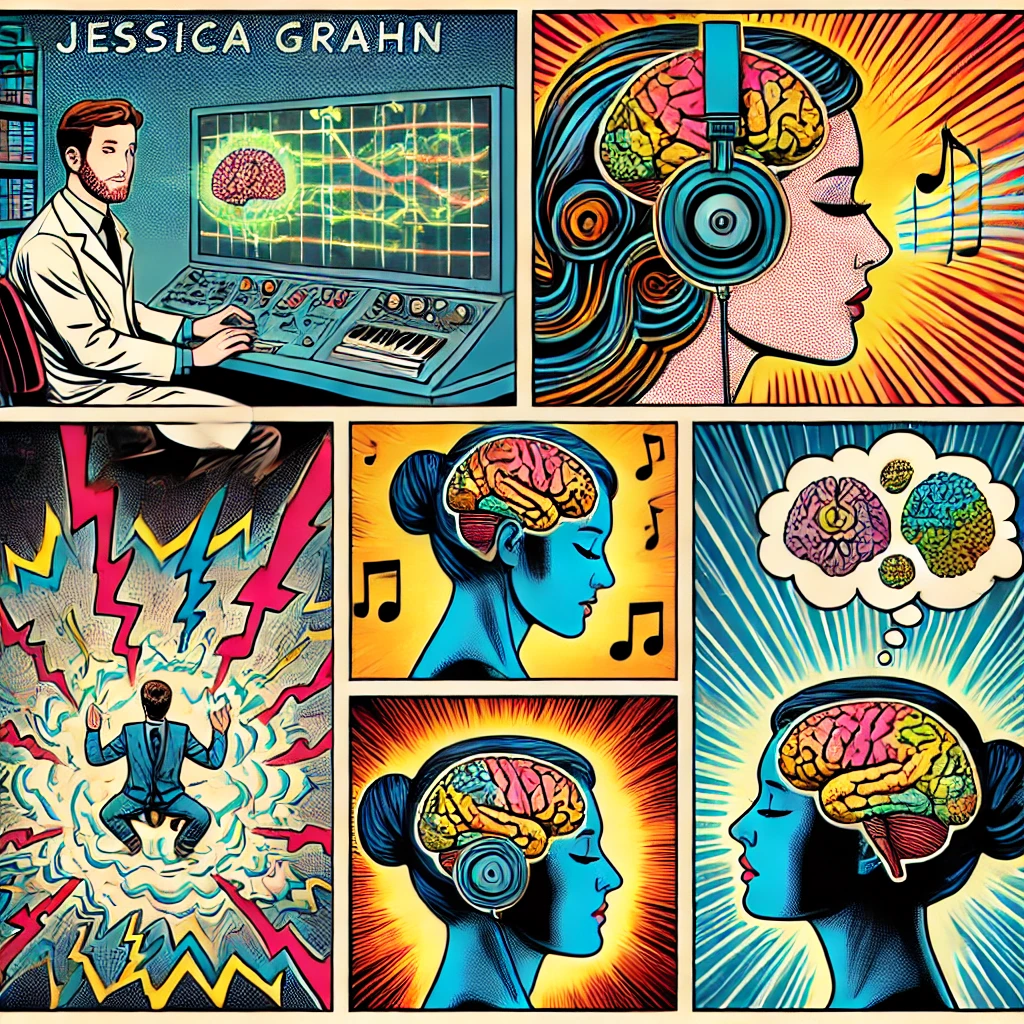Music and the Brain Jessica Grahn
Jessica Grahn, Cognitive Neuroscientist, talks about the power of the human mind and how it can be transformed through music.
Jessica Grahn, Ph.D., is a cognitive neuroscientist with a special focus on music and the brain. Her research explores how music affects cognitive processes and neural activity, shedding light on why music has such a profound impact on the human experience. Dr. Grahn is known for her work on rhythm perception, the neural basis of musical beat processing, and how these elements relate to movement and motor coordination.
Research Areas
Dr. Grahn’s work spans several key areas in the intersection of music, neuroscience, and psychology:
– Rhythm and Movement: One of her research focuses is understanding how the brain processes rhythms and why certain rhythms compel us to move or tap our feet. This area of study has implications for therapies in neurological disorders, such as Parkinson’s disease, where patients may have difficulty with movement.
– Music and Motor Coordination: Related to rhythm and movement, Dr. Grahn investigates how music can enhance motor coordination and rehabilitation. Her studies look at how rhythmic cues in music can improve walking in patients with movement disorders and how these cues are processed differently in the brains of musicians and non-musicians.
– Neural Mechanisms of Music Perception: Dr. Grahn’s research also delves into the neural mechanisms underlying music perception, including how different brain regions are involved in processing musical beats and rhythms. This research helps to unravel why music is a universal human experience and how it can evoke such strong emotional and physical responses.
Contributions to Neuroscience and Music
Dr. Grahn’s contributions to the field of music neuroscience are significant, providing valuable insights into the complex interactions between music, the brain, and behavior. Her work has:
– Highlighted the potential of music as a therapeutic tool for neurological conditions affecting movement.
– Advanced our understanding of the neural basis of rhythm perception and its universal appeal across cultures.
– Demonstrated the potential for music-based interventions to support cognitive and motor functions.
Public Engagement
In addition to her research, Dr. Grahn is active in public engagement, sharing the findings of music neuroscience with wider audiences through lectures, interviews, and popular science articles. She aims to raise awareness of the importance of music for brain health and its potential applications in therapy and rehabilitation.
Conclusion
Jessica Grahn, Ph.D., stands at the forefront of research into music and the brain, offering exciting insights into how music affects us at a neurological level. Her work not only enriches our understanding of the cognitive processes behind music perception and enjoyment but also opens up new avenues for harnessing music’s therapeutic potential. Through her research and public engagement, Dr. Grahn contributes to a greater appreciation of the importance of music in human culture and health.
